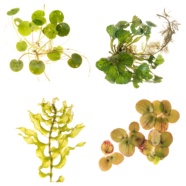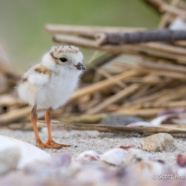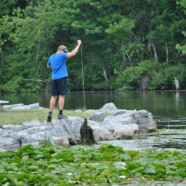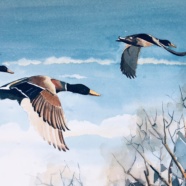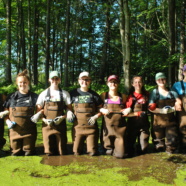What Are These “Weeds”?
Many aquatic plants exist within Chautauqua Lake; its nutrient-rich sediments provide a fertile growing bed for vegetation. Some of these plants are native to our area and provide critical ecological and environmental benefits, while others were introduced from distant locales and have been negatively impacting the ecological function, recreational and economic value of Chautauqua Lake. Surprisingly, some of the most prevalent invasives have been with us for decades already, while a steady stream of nearby or newly arriving species poses additional challenges to the future health of the...
Read MoreVigilant volunteers on Connecticut beaches result in successful nesting season for threatened shorebirds.
Season recap reveals new details about where American Oystercatchers migrate, and historically low numbers for Least Terns. November 19, 2019– Thanks to the efforts of almost 100 volunteers on Connecticut’s beaches, two of the state’s most vulnerable shorebirds had highly successful breeding seasons in 2019, reflecting a generally safer shoreline locally for federally and state-threatened birds. The Audubon Alliance for Coastal Waterbirds announced that the 57 pairs of Piping Plovers that nested in the state fledged 1.72 chicks per pair, higher than the regional goal of 1.5 fledglings...
Read MoreAn introduction to Chautauqua Lake’s Aquatic Invasive Plants
Many aquatic plants exist within Chautauqua Lake; its nutrient-rich sediments provide a fertile growing bed for vegetation. Some of these plants are native to our area and provide critical ecological and environmental benefits, while others were introduced from distant locales and have been wreaking havoc on the ecological function, recreational and economic value of Chautauqua Lake. Surprisingly, some of the most prevalent invasives have been with us for decades already, while a steady stream of nearby or newly arriving species poses additional challenges to the future health of the lake....
Read MoreAdult 55+ Nature Art Classes to be Offered at RTPI
RTPI is excited to expand our educational programming to include art classes designed for adults aged 55 and up offering during the spring and summer of 2019. Through a grant from the Tri-County Arts Council furnished by the New York State Council on the Arts Decentralization Program, local artist and art instructor Robin Zefers Clark will teach two series of watercolor lessons at RTPI, each occurring over a six-week period. The first series of lessons will take place each Monday between May 6 – June 10 from 10:00 – 11:30am. The second series will begin Monday, July 29 and end on September...
Read MoreRTPI hiring for ‘Project Wild America Youth Ambassadors’ summer program
The Roger Tory Peterson Institute of Natural History (RTPI) is currently hiring area high school and college students to work alongside its conservation staff this summer for the fifth annual Project Wild America Youth Ambassadors (PWA) Program in Jamestown. Building on the successes from the past four years, students enrolled in RTPI’s PWA program will immerse themselves in Jamestown’s ‘urban ecosystem’. These students will investigate, monitor and improve habitat for threatened species in the area and raise public awareness about our important natural resources, environmental challenges...
Read More



